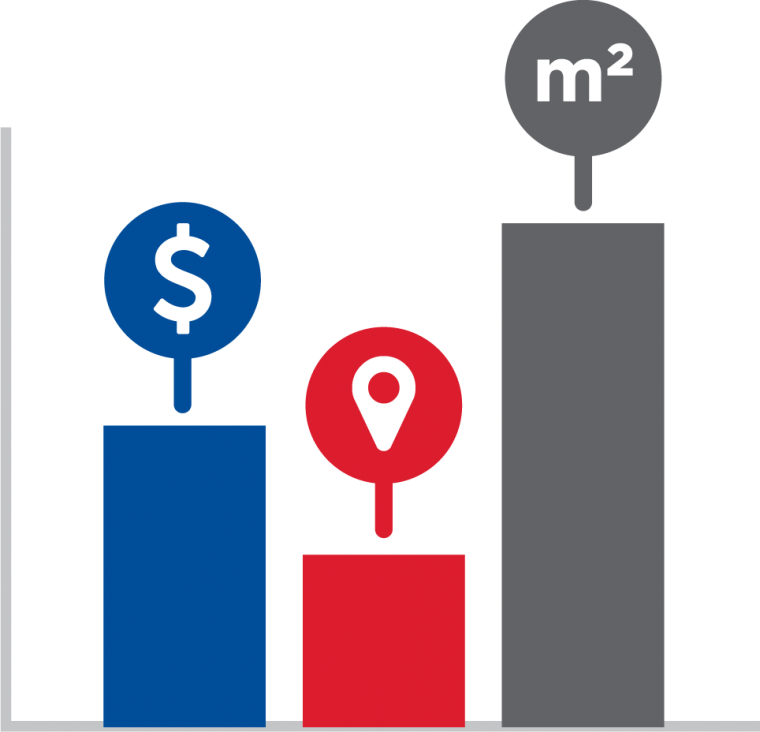Setting your sale price
The Art and Science of Pricing a House

Price can either be a big draw or a big deterrent when it comes to selling a home. That’s why it’s so important to set the right sale price from the beginning.
Around 40% of sellers do not correctly estimate the value of their home, and that could put you at a disadvantage when it’s time to sell.
We know that every neighbourhood and community is different, and that has a unique impact on sale price and strategy for every property we sell.
Let’s take a closer look at the following:
- Market value vs property prices
- Finding additional home value
- Owner-occupiers vs investors
- Is price everything?

The aim of a sale is to make a potential buyer see ‘value’ in the property for the ‘price’ they are willing to pay.
While house prices can be broadly guided by market factors like comparable sales, average price trends and supply and demand, it is the value that ultimately determines the final dollar amount. Naturally, value is perceived and set by the individuals willing to buy.

When determining the value of your property, it’s important to be realistic – this means some of the features of the house that you love may not be as desirable to the wider buyer market. Likewise, features that you might not perceive as valuable could mean much more to a wider market.
Some buyers might be willing to pay a higher price for the specific features they want in a home, and a qualified real estate agent will understand how to use your home’s features to attract the right buyers.

Whether the potential buyer is planning to live in the property or purchase it for investment may also determine what a buyer sees as good value – and a fair price. This is yet another example of the art and science behind setting the right price.
Most investors will be more ‘transactional’ when it comes to agreeing on a price; what rental yield they can get and what potential capital gains might also be on offer. If an investor prioritises features, it is a good indicator that the property is more likely to be rented out.
On the other hand, owner-occupiers may be more attracted to ’emotive’ considerations; somewhere they could be happy to live in with their family. How livable is the space? Can they turn the house into a home? Is the local community one that they want to become a part of? How can they make the most of the local amenities and infrastructure?
While price is definitely important, it’s not the only part of a successful sale. In a buyer’s market, you may see buyers willing to wait for the right deal, and in this case price is key.
You don’t want to out-price potential buyers; however, in a seller’s market you could end up with multiple offers – some of which even exceed your original asking price.
On the flip side, a home priced too high has the potential to scare off buyers, possibly allowing your home to sit on the market for longer, and produce a lower selling price.
Having the right price point at the start of your sales campaign will put your home in a stronger position to get more attention from qualified buyers, so work with your agent to get it right from the very beginning.
Local expertise, Global reach
RE/MAX has the strength, magnitude and tools to connect your home with a global marketplace, providing access to millions of buyers around the globe, giving your property the best chance for a great result.
With the advantage of global reach and local expertise, our experienced agents combine local know-how and market data to determine property value and drive the right price for your home.

